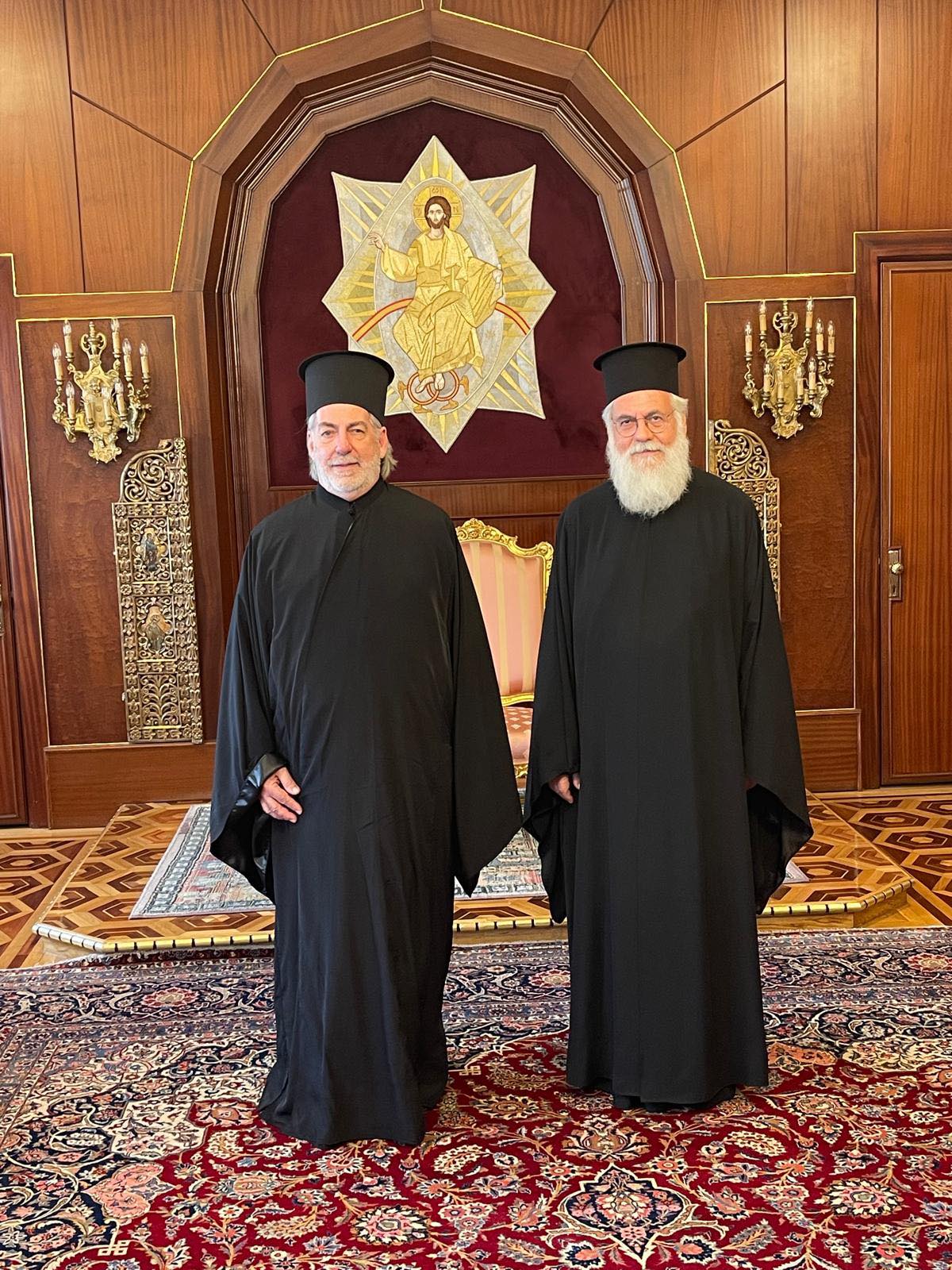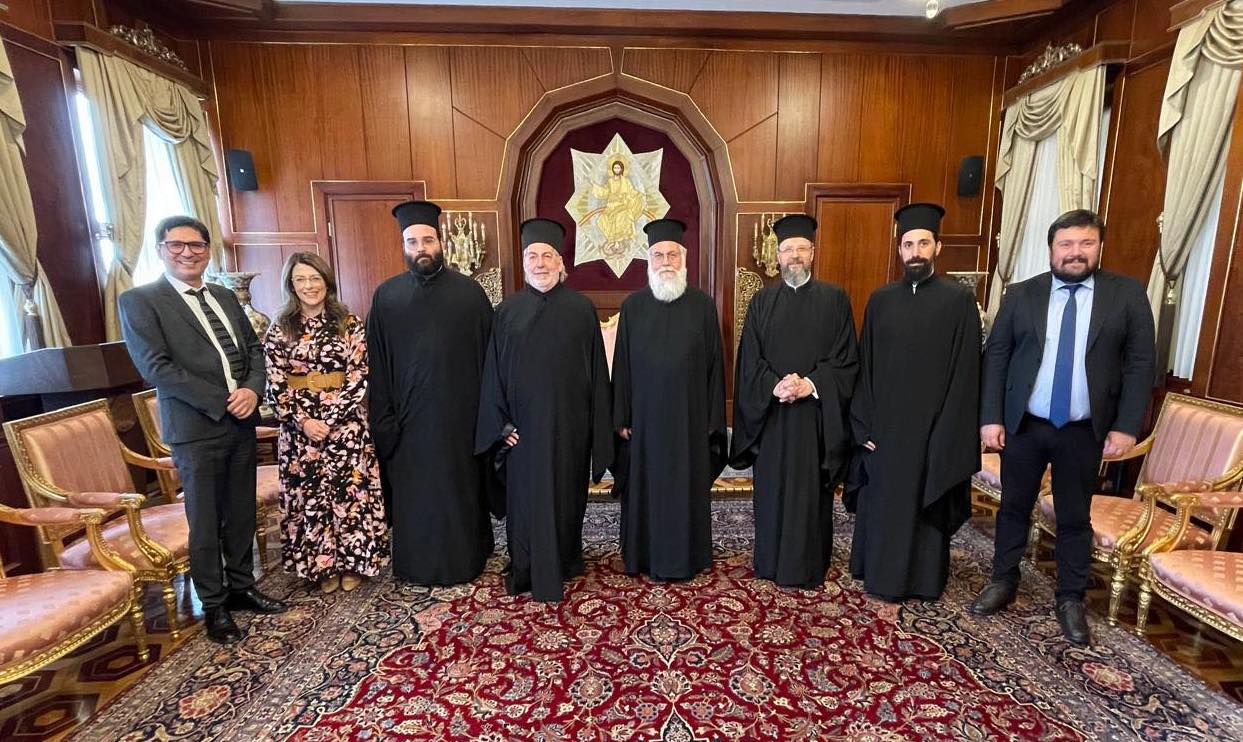The first meeting of the newly established Joint Commission on the social problem of human trafficking, between the Ecumenical Patriarchate and the Church of Greece, was held on 13 May 2024 in Constantinople. The meeting was hosted by the Ecumenical Patriarchate with the blessing of Ecumenical Patriarch, Bartholomew, and took place in the Chamber of the Hierarchs at the Patriarchal Residence.
The meeting was co-chaired by Archbishop Nikitas of Thyateira and Great Britain, on behalf of the Ecumenical Patriarchate, and Metropolitan Athenagoras of Ilion, Acharnes, and Petroupolis, on behalf of the Church of Greece.
The Ecumenical Patriarchate was represented by Archbishop Nikitas of Thyateira and Great Britain, Co-Chairman; The Rev. Patriarchal Deacon Hieronymos Sotirelis, Acting Secretary; The esteemed Dr. Petre Breazu, Senior Research Fellow at Cambridge University; and the gracious Ms. Katerina Pekridou, Programme Officer for Theology and Studies at the Conference of European Churches (CEC).
The Church of Greece was represented by Metropolitan Athenagoras of Ilion, Acharnes, and Petroupolis, Co-Chairman; The V. Rev. Archimandrite Spyridon Katramados, Acting Secretary; The Rev. Deacon Nikodemos Malamatenios; and the esteemed Mr. Dimitrios Anyfantakis, scientific collaborator of the Holy Metropolis of Ilion, Acharnes, and Petroupolis.
The working session of the Joint Commission began with an opening prayer by Archbishop Nikitas of Thyateira.
In the beginning of the session, the Most Reverend Co-Chairmen, in their presentations, described the primary goal of the Joint Commission, emphasizing the importance of training clergy to identify victims and raising society’s awareness of the tragic reality about the prevalence of slavery and human trafficking. During the proceedings of the first session, particular emphasis was also placed on recognizing various aspects of slavery and human trafficking, with a special focus on the need for a comprehensive understanding beyond sex trafficking, including cases of labor exploitation, organ trafficking, child abduction, and domestic servitude. Archbishop Nikitas emphasized the relevance of these issues to society and the overall responsibility and position of the Church in protecting human dignity and the human person.
The Joint Commission proposed the organization of seminars and conferences in Athens, Thessaloniki, Patras, Crete, and the Dodecanese, aimed at educating clergy, educators, parents, and policymakers on identifying and combating slavery and human trafficking.
Additionally, a joint circuit was proposed to inform the Church’s faithful about the issue, accompanied by the creation of a “toolkit” and a series of seminars to be delivered in five modules during Great Lent 2025. These sessions will incorporate theological and biblical perspectives, using biblical narratives as parallels to contemporary slavery cases.
To kick-start these initiatives, the Commission finally proposed the establishment of three conferences. The inaugural conference, which could be held in Athens, would offer a platform for victims of human trafficking to share their firsthand experiences. Moreover, the event aims to raise awareness through strategic collaboration with notable figures from various spheres and by leveraging social media platforms with the aim of amplifying the Church’s message, engaging with a wider audience, and mobilizing collective action against human trafficking.
The main theological axis of the Commission’s discussions was the concept of slavery as a result of sin and the liberation from it through the message of Christ’s Resurrection.
The session concluded with a closing prayer by Metropolitan Athenagoras of Ilion.

















